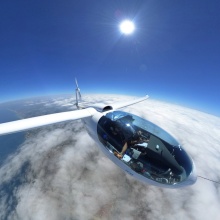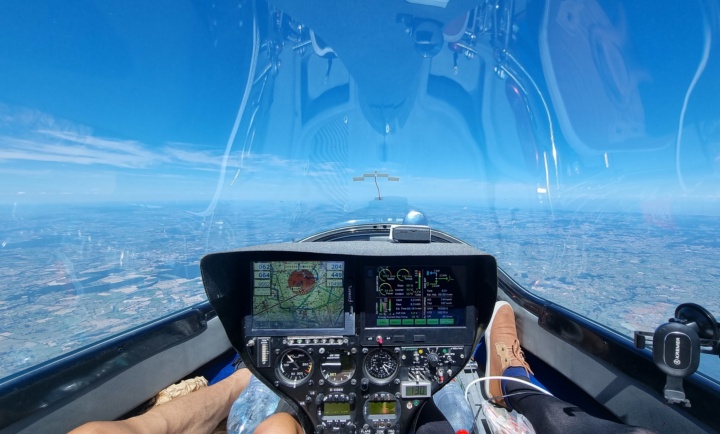The University of Stuttgart's e-Genius hybrid, an electrically powered research aircraft with a serial range extender, has flown 2,002 kilometers on a demonstration flight for the first time. The aircraft took off from the Mengen-Hohentengen airfield near Sigmaringen and flew to Biarritz on the Spanish border and back again without a stopover. This makes the e-Genius the first hybrid-electric aircraft in the world to fly more than 2,000 kilometers non-stop. The current record is the e-Genius's fourth flight this summer to set new world records for electrically powered aircraft.
The e-Genius hybrid was upgraded to an extended-range version this year. This now makes it possible to fly longer distances with the same efficiency as before. "This flight has demonstrated that our highly automated hybrid system actually works and that the efficiency along the entire drive chain was as high as predicted," said a delighted Prof. Andreas Strohmayer, head of aircraft design at the University of Stuttgart's Institute of Aircraft Design (IFB). "This is a necessary step towards the practical use of hybrid electric flight as a possible solution to reduce the carbon footprint of flying in the future." Jonas Lay, group leader of manned aircraft projects at the IFB adds, "We were able to validate redundant systems and overall reliability and they demonstrated a high level of safety."
Because the flight was so long, the pilots decided not to fly at the optimum efficiency point, but to fly a little faster. In addition, this summer's record temperatures posed a challenge for the cooling systems, limiting the achievable speed of the e-Genius. But even under these difficult conditions, the research aircraft consumed only 81 liters of fuel over the entire route - just two liters per passenger per 100 kilometers.
In fact, the plane could even have flown further, if the pilots had not calculated a safety reserve of enough fuel and battery power for three hours of flight time. "The long flight range shows that the technology is now ready for widespread use," says Lay. "Worries about range or insufficient payload should now become a thing of the past."
Expert Contact:
Prof. Andreas Strohmayer, Jonas Lay, University of Stuttgart, Institute of Aircraft Design, Department of Aircraft Design, phone.: +49 711 685 63101, email Prof. Strohmayer, email Jonas Lay




